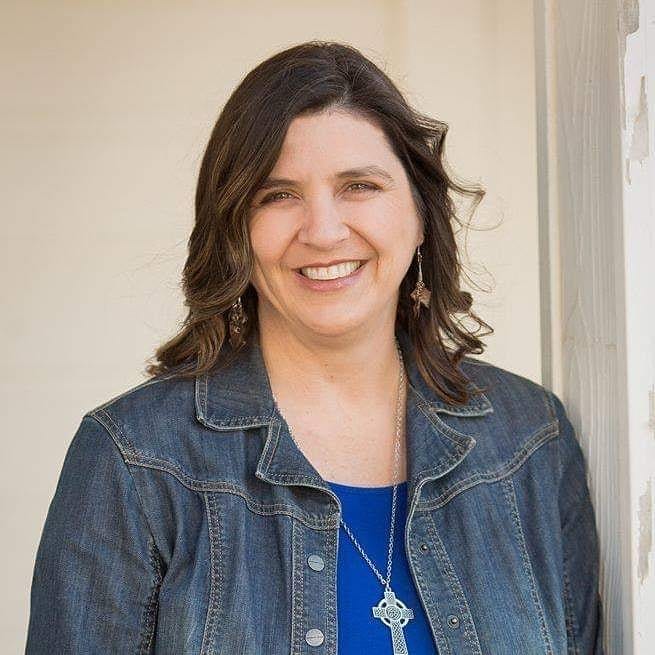Jesus and Women
Article by Kelley Mathews

This article was adapted from 40 Questions About Women in Ministry, by Kelley Mathews and Sue Edwards
The Women Who Traveled with and Supported Jesus’s Ministry
Jesus spent his almost-three-year earthly ministry traveling around Israel and adjacent regions. Was it common for men and women who were not family-related to travel the country together at that time? If you had been able to join the Twelve and the women who joined them in their wandering, what do you think you would have witnessed?
We are Family
We know that Jesus spent a lot of time teaching and equipping the Twelve throughout their journey. As we wrote in Mixed Ministry, “Do you see Jesus and the twelve apostles walking along immersed in deep, important conversations while the little band of obscure women followed far behind bringing up the rear in silence, weighted down with gold to be doled out as needs arose? Would the man who welcomed Mary (of Bethany) to sit at his feet have ignored and excluded other passionate women like Mary Magdalene, Joanna, and Susanna from learning and engaging as they sojourned together? No. Jesus intentionally included them in a culture where women were undervalued” (p. 45).
Jesus related with women in a healthy manner, women who were not connected by family or didn’t have a chaperone (John 4:27). He valued women as disciples. Jesus created a new kind of family who joined together in harmony and moral purity, a family of sacred siblings.
kelley mathews
Financial Role-Reversal
Jesus didn’t exactly earn a living while he traveled the length of Israel, preaching and healing. The only recorded income financing Jesus’s itinerant ministry came through the women who continually followed him (Luke 8:1–3). Although travelers expected the hospitality of townsfolk to provide some food and necessities, Jesus’s procession of the Twelve, a company of women, and others who might follow from time to time required additional resources, and these women stepped up as providers.
In the first century, wealthy women became patrons of gifted people like artists, students, and clergy, serving as protectors, sponsors, or benefactors. Joanna, Mary Magdalene, Susanna, and other women disciples with means assumed this role, in effect bankrolling Jesus’s ministry. Patrons used their influence to protect and assist their “clients.” In the typical patron/client relationship, the client would serve the patron in response to the patron’s greatly needed support. However, instead of Jesus Christ being beholden to them, these women patrons served him wholeheartedly, modeling the new radical role reversal that Jesus taught in Luke 22:25–27.
What do different scholars think?
Some heterarchs (those who argue for equality) insist that this text argues against the strict gender roles asserted by some hierarchs. They say we cannot assume that the women who traveled with Jesus were there just to cook meals and wash and mend clothes. They may have done so, but Luke never tells us that was their purpose. Neither Jesus nor any of those accompanying him on their journey engaged in work for pay, but instead generally relied on the generosity of these women of wealth. Karla Zazueta states,
Our Lord’s practice of receiving the financial support of women suggests that doing so does not undermine manhood. And conversely, apparently a woman’s femininity is not violated if she financially supports a man or men. Jesus was not concerned with defending his manhood. His only concern was spreading the news about the kingdom of God. (Vindicating the Vixens, 265)
Hierarchs admit that many women accompanied and learned from Jesus during his earthly ministry. But their traveling together and the women bankrolling the ministry does not mean Jesus did not distinguish between how men and women could lead and serve. Jesus only called men to serve as his apostles, and when they needed to replace Judas, Peter insisted that they chose from between the men who had been with them (Acts 1:21).
Other hierarchs suggest that, besides providing financial support and because these women had experienced powerful life change in their relationship with Jesus, perhaps it was easier for these women to minister personally to the women who were part of the crowds following Jesus (cf. Matt. 14:21; 15:38). They acknowledge that Jesus broke down barriers—economic, racial, religious, gender—and created a spiritual family based on equality of discipleship. But, they contend, within the family each person has different roles while maintaining equal value.
Summary
Most everyone agrees that Jesus gladly welcomed women as his disciples, modeling God’s way for how men and women should treat one another. George and Winston summarize it this way:
The Gospels contain at least forty different texts describing contacts between Jesus and women, clearly indicating that Jesus was introducing something new. He broke with convention in his relationships with women, treating them as individuals, associates, equals on the human plane, and simply “friends.” They, just as much as his male disciples, were not considered as slaves who did not know what their master was doing (John 15:15) but as his “friends” whom he took into his confidence (v. 15b) . . . . And He respected women, took them seriously, believed in them, and associated freely with them in healthy, relaxed comradeship (Recovering Biblical Ministry by Women, 228).
ABOUT THE AUTHOR
KELLEY MATHEWS
(ThM, Dallas Theological Seminary) is a former women’s ministry director and longtime writer/editor. Coauthor of eight ministry books, she currently writes for RightNow Media and is pursuing her Doctorate at Northern Seminary. She and her husband have four children, two of them in college and two still at home. Her parenting skills (and confidence), therefore, are undergoing a massive shift.
We love to collaborate with creatives, conversationalists, and community-builders. Connect with us to have your work featured on The Holy Shift.







